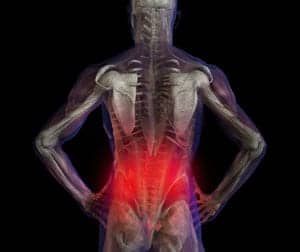A 10-week outpatient Acceptance and Commitment Therapy (ACT)-based interdisciplinary pain rehabilitation program for individuals with chronic pain was associated with improvements that included pain severity, pain interference, and physical and mental health-related quality of life, according to study results published in Pain Practice.
Although there is evidence supporting interdisciplinary pain rehabilitation as a treatment option for chronic pain, specific rehabilitation programs use different models of care. ACT is a behavioral therapy approach that provides home-based individual service delivery, a media release from Clinical Pain Advisor explains.
A total of 137 adult patients (108 women; mean age, 48.8±16.3 years) with chronic pain who were admitted to and completed the Mary Free Bed Pain Rehabilitation Program, as well as admission and discharge surveys, between January and December 2018 were enrolled in the study. The patients reported experiencing pain in multiple sites (35.8%), fibromyalgia (24.1%), low back pain (12.4%), and headache (7.3%).
There was significant improvement in pain severity, pain-related life interference, depression, anxiety, insomnia, physical and mental health-related quality of life, pain catastrophizing, acceptance of pain, and pain self-efficacy (P <.001 for all in addition to a marked reduction opioid pain medication use>P =.001).
The researchers identified pain catastrophizing, pain acceptance, and pain self-efficacy as treatment mechanisms. Pain catastrophizing was found to be a significant mediator of pain severity and interference, as well as depression. Pain acceptance was a significant mediator of depression, but not of pain severity or interference, the release continues.
Study limitations include the lack of randomization and an inability to establish a causal relation between variables.
“The results of the current study provide support for a 10-week, ACT-based, individual treatment model. In addition, treatment-related changes in pain catastrophizing, pain acceptance, and pain self-efficacy were related to treatment outcomes, suggesting these are important treatment targets in pain rehabilitation,” the researchers conclude, in the release.
[Source: Clinical Pain Advisor]





